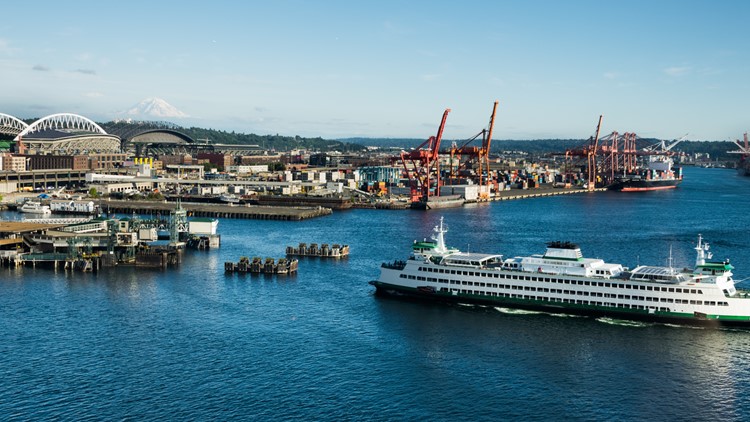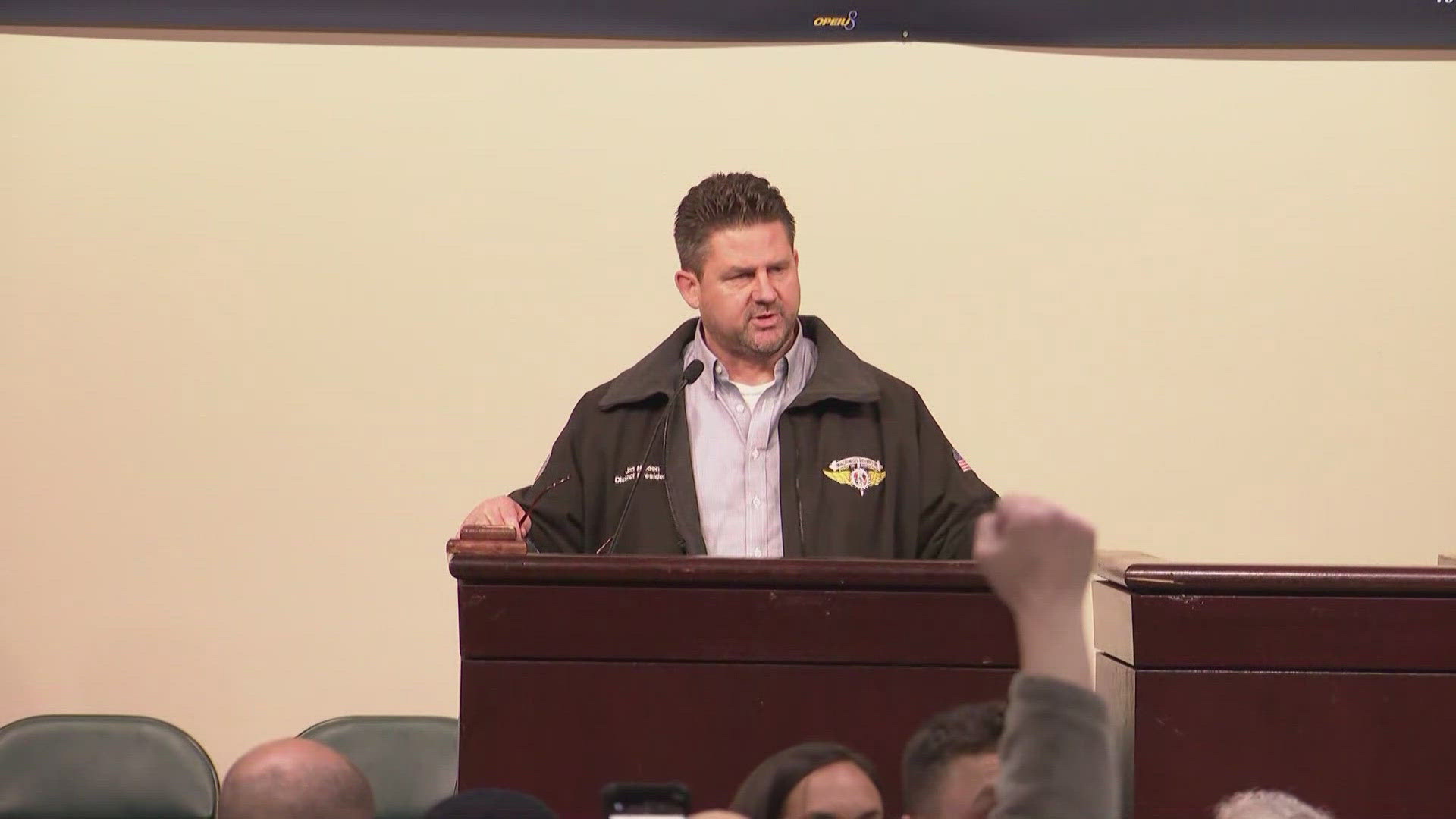SEATTLE — Up to three of the largest Washington State Ferries (WSF) vessels will be converted to hybrid-electric power, with the first vessel to be completed by next summer, according to a press release from the agency.
During the upgrades, the ships will also get updated propulsion system controls to extend their life expectancy. The age of some of the state's ferry vessels has caused ongoing issues for the agency, which, paired with staffing challenges, has caused intermittent disruptions to sailing schedules over the past few years.
The project also aligns with the agency's goal of zero emissions by 2050. WSF is the biggest contributor of greenhouse gas emissions among all state agencies, burning 19 million gallons of diesel fuel each year, according to the release.
“This contract is a big step toward providing our ferry-served communities with better air quality and more sustainable service,” said Matt von Ruden, system electrification program administrator for WSF.
Once the terminals are electrified in 2026, emissions from the three Jumbo Mark II vessels, which are the biggest emitters in the fleet, are expected to drop by 95%, von Ruden said.
WSF awarded the contract to the shipbuilding company Vigor, which also fulfills infrastructure and defense contracts. The company's bid to the state was $150 million - $30 million higher than the state's estimate. The contract is for the conversion of two vessels at approximately $100 million with a fixed-price option to update the third vessel in 2025.
Vigor will begin work on the Wenatchee at its Harbor Island shipyard in September. The ship is expected to reenter service on the Seattle/Bainbridge route next summer. The Tacoma will undergo conversion in 2024, with the third boat, the Puyallup, to follow in 2025.
WSF's long-range plans include retrofitting six diesel vessels to hybrid electric power, building 16 new hybrid ferries, retiring 13 diesel vessels and adding charging power to 16 terminals.



